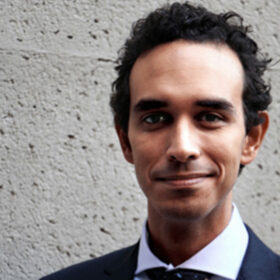
Anyone looking for evidence of the broad range of applicability of a mechanical engineering degree need look no further than Abdel Rahman Abdel Fattah.
After earning his undergraduate degree in Mechanical Engineering in 2009, he stayed at McMaster to earn his Masters in Engineering Design with a focus on renewable energy. Then, after a few years in that field, he returned yet again to earn a PhD with a focus on bioengineering and cancer, which has led him to a career in the field of biophysics.
Today he is a Postdoctoral Researcher at the Katholieke Universiteit Leuven (KU Leuven) in Belgium, in the Laboratory of Bioengineering and Morphogenesis. His research focuses on tissue mechanics in human neural tube organoids, which impact cell differentiation, fate, and morphogenesis.
His work aims to improve our understanding of what happens during the development of human neural tubes, which eventually form the nervous system, and his undergraduate specialty continues to serve him well, says Abdel Fattah.
“Mechanical Engineering – one of the oldest engineering disciplines dating back thousands of years – has evolved through the centuries and now finds application in healthcare, bioengineering, aviation, the energy sector, and the list goes on,” he says.
Along with research, Abdel Fattah oversees a PhD and a Master student, reviews papers, writes grants, and attends conferences to present research progress.
His advice to today’s students? “Always be tinkering with things and have fun doing it. Yes, marks are important but having fun on little projects (such as all the clubs that are available on campus, e.g. solar car) creates a circle of friends that will grow and evolve with you.”
“It comes down to the people that share your path, and that’s why McMaster University is more than the sum of its labs and buildings and institutes.”



